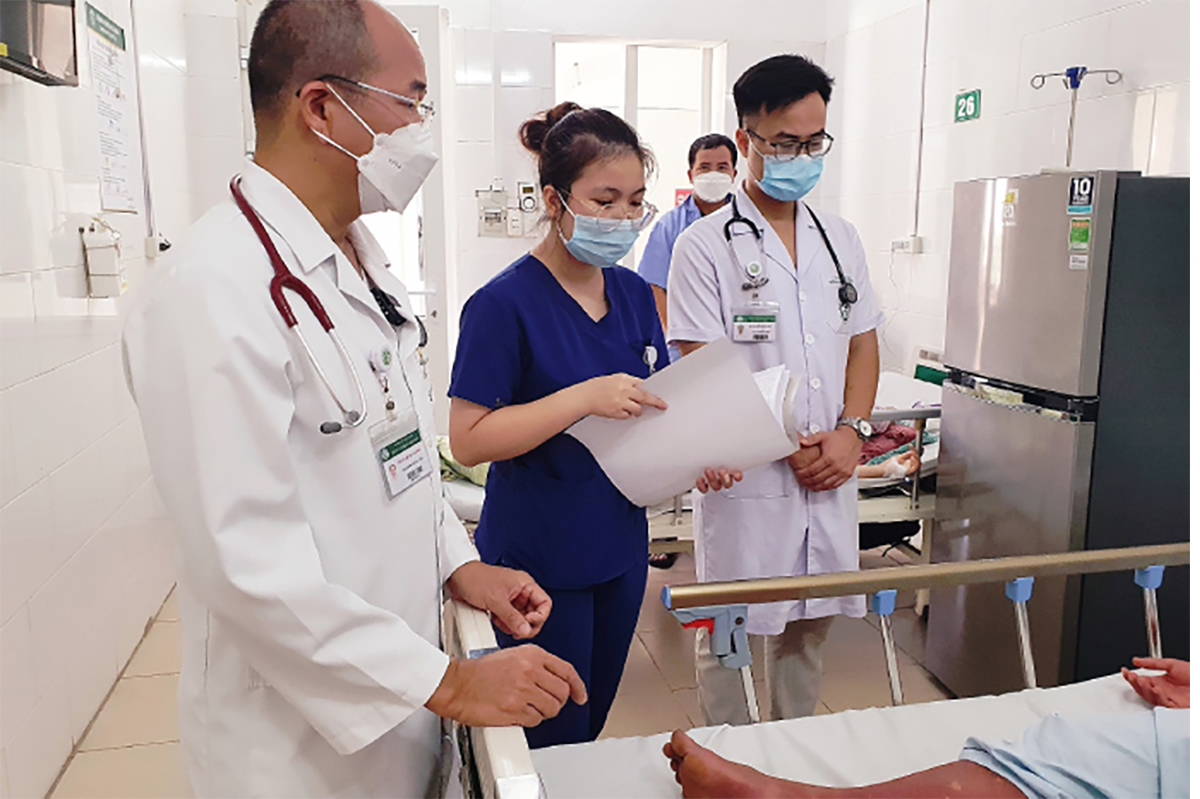Dengue haemorrhagic fever has diverse clinical manifestations, rapidly progressing from mild to severe. At the Center for Tropical Diseases, National Children's Hospital, from the beginning of 2023 until now, 120 children with dengue have been admitted for examination and treatment. More than 50 hospitalized pediatric patients showed warning signs.
Many children hospitalized for dengue treatment have warning signs
According to statistics, cumulatively so far this year, the country has recorded 54,236 dengue cases, 12 deaths. Compared to the same period in 2022 (138,928/75) the number of dengue cases decreased by 61%, the number of deaths decreased by 63 cases.
According to the "Guidelines for diagnosis and treatment of dengue hemorrhagic fever" issued by the Ministry of Health recently applied at medical examination and treatment facilities throughout the country, the disease occurs all year round, often increasing in the rainy season. The disease occurs in both children and adults. Dengue hemorrhagic fever is characterized by fever, hemorrhage and plasma drainage, which can lead to hypovolemic shock, coagulopathy, organ failure, if not diagnosed early and managed promptly

Dengue haemorrhagic fever has diverse clinical manifestations, rapidly progressing from mild to severe. The disease usually has a sudden onset and progresses through three phases: the febrile phase, the critical phase, and the convalescent phase. Early detection of the disease and understanding the clinical problems in each stage of the disease help early diagnosis, correct and timely treatment, in order to save lives.
At the Center for Tropical Diseases, National Children's Hospital, from the beginning of 2023 until now, 120 children with dengue have been admitted for examination and treatment. Including more than 50 pediatric patients hospitalized with warning signs, children hospitalized for dengue treatment are diverse in age, fortunately there are no deaths.
What absolutely not to do when a child has dengue fever
Experts of the National Children's Hospital said that all children with high fever from day 2 onwards and in the area where people have dengue should be taken to the nearest health facility for examination, monitoring and advice on treatment and prevention.
When children have fever ≥ 38.5 degrees Celsius, give paracetamol antipyretic at a dose of 10-15 mg/kg of body weight, repeat the dose every 4-6 hours if the child has fever again. Combine with warm compresses to avoid complications of high fever causing seizures.
- Let children drink plenty of water: Oresol water (mixed according to the right dosage), filtered water, orange juice, coconut water ... Feed the child with liquid, soft, easily digestible food, foods rich in vitamins, vegetables, juices.
- Do not give children carbonated water, water that is red or brown.
- Avoid spicy foods, red or brown foods, foods that are too hot or too cold.
- Absolutely do not use Ibuprofen or aspirin antipyretics to reduce fever for children because this drug makes bleeding worse, can cause severe stomach bleeding, which is life-threatening.
- Do not go to the pharmacy to buy antibiotics for your child to use because this disease is caused by the Dengue virus.
- Taking antibiotics is not only ineffective, but also aggravates the condition of the liver, kidneys.
- Absolutely do not take children for infusions in unsafe medical facilities, private clinics that are not eligible for procedures.
Source: Health & Life Newspaper